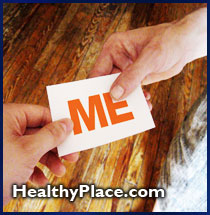Time of Decision
Part 4: Time of Decision
 Once episodes of overeating diminish and hidden feelings become apparent, the second phase of your journey begins.
Once episodes of overeating diminish and hidden feelings become apparent, the second phase of your journey begins.
You feel proud and excited as you establish a healthy and reasonable eating pattern. Your good feelings, based on controlling what you eat, reinforce hope that you can create a better life for yourself. In time this more balanced way of eating and living will become familiar.
In this phase of your journey, as newly formed eating habits begin to become routine, you will begin to feel vulnerable and unsure.
This is a critical time. The emotionally flooding thrill of early success will pale as you feel previously hidden emotions. You may feel tempted to return to overeating to soothe yourself.
The temptation to return to overeating signals your next opportunity. Your feeling of exposure and vulnerability springs from being near secrets you have from yourself. Your anxieties suggest that you run away by eating. Your journey to health points forward into the challenge of meeting your fears. This is a time of decision.
Let's take a closer look at inner secrets, those secrets inside that even you don't know.
Necessity of Inner Secrets
If you overeat or binge, you may in your past have experienced something you could not bear to feel or know. Overeating puts a great, numbing shield between you and your awareness of yourself. It is part of an effective system many people develop in order to not fully know their history.
That history may involve events that happened to you, events you witnessed, events you heard about. That history may involve bewildering and powerful emotional experiences you had in the past but did not have the strength or maturity to understand or tolerate. Overeating protects you from knowledge about yourself.
No one can end an effective protective system unless they know they do not need that protection any longer. If the threatening sense of danger you have is a secret from yourself, you have no way to evaluate your safety. Without knowledge of your inner life, you can't know when you are out of danger so you will continue to use your protective system, overeating.
Once you know your secrets, you begin to learn that you are able to live with the knowledge. You can strengthen yourself through practice and understanding to live your life with more appreciation for the experiences you have survived. Then you will have no need for the methods which keep you numb and oblivious. There lies triumph and freedom.
Are you curious about your inner secrets?
Curiosity
Are you curious about your inner secrets? Curiosity is the beginning of freedom. Curiosity can mobilize your strength and courage. It can propel you on your triumphant journey.
Responsible diet books or physical exercise programs provide tools and guidance to help you achieve more physical health, strength, flexibility and stamina. They do not address the powerful issues that challenge or block your entry to a more healthful psychological and emotional path.
To reach the more healthful path that can lead to triumph and freedom you need your curiosity.
Curiosity asks, "Why must I live this way?" Then, as you become more alert and aware, you will seek your answer in a new and deeper way.
This is the search, find and understand section of your journey. Your secrets are treasures which, when discovered, understood and emotionally processed, will help free you from your overeating life style.
How Secrets Relate to Overeating and Binge Behavior
For our discussion there are two kinds of secrets: the ones you know about and the ones you don't know about.
Secrets overeaters know about and try to keep hidden from others cover a wide range of eating behaviors. Some secrets include:
- gorging on bread, pasta, pastry, ice cream, frozen yogurt, especially alone at night.
- getting caught in the sweet/salt trap eating peanuts and chips with cookies and candy.
- Sitting in front of the TV, eating and 'checking out' for hours.
- Eating for comfort while driving the car.
Overeaters often calm social jitters by eating privately before they eat a meal with other people. This also helps overeaters to hide their true eating habits. It's easy to say no publicly to second helpings and chocolate cake when you have eaten sweets before the meal. Plus, you know you can gorge yourself when you get home.
Overeaters often try to convince others to join them in "innocent treats," pretending their eating splurge is an occasional lark and not part of a regular pattern.
Keeping secrets from others often involves lying. Lying strips you of your self-esteem and fills you with permanent guilt. The guilt feels permanent because the lies seem so necessary. Without the lies, your secrets would become known. Public disclosure of your secrets seems to you like it would be a personal catastrophe.
The Darker Side of Secrets -- Moving to the Unknown
Secrets go beyond food behavior. Overeaters often try to give themselves a sense of power, thrills or feelings of superiority. They may buy things beyond their resources. They may have secret sexual relationships. They may flee a relationship if they suspect the person sees through their eating pretenses or is aware of their buying or sexual binges.
If any of these secrets apply to you, then you know about the darker side of secret keeping. You get scared. You cry or shake in the dark. You occasionally isolate yourself until you feel there is not a soul who cares about you. You feel helpless and angry regularly.
You make private, wild promises about changing, but can't. You binge on food or other activities until you feel drugged. You may be hung over for days.
You won't tell anyone about this secret personal hell you're living. You make complaints of being ill. You may accept or expect caretaking and feel profoundly sad when it is not enough.
Now we are entering the vast areas of secrets you do not know about yourself. Here are major signals that you are entering a secret territory within yourself. You yell, cry, plead or become stone silent with someone while feeling self-righteous.
This may be a familiar and recurring scene, yet you may not wish to know how you contribute to create it. You may not wish to know how your troubled-eating practices and binge behaviors cause many problems in your life.
You can succeed in not knowing. You have for a long time.
To explore how you create some of your troubles would bring you uncomfortably close to your unknown inner secrets.
What are these secrets? What is the darkness from which they arise? Letting your curiosity come forth will help you tolerate your feelings as you explore the possible roots of your inner secrets.
Part 4: Roots of Inner Secrets
Secrets from yourself are usually based on inescapable stress situations in childhood. They often involve blatant physical, sexual and emotional abuse. However, roots of secrets can be found elsewhere as well.
Some examples are:
* To change homes, schools, friends and neighborhoods regularly or in a traumatic way.
* To face death or serious illness of crucial people in your life.
* War
* Riots
* Earthquakes
* Fire
* Refugee flight and resettlement
Too much unpredictable behavior and schedule changes can cause intolerable stress to a child. Sometimes the child discovers that food stops or at least dims the pain of that stress.
Part 4: More Subtle Causes of Inner Secrets
When a child's identity, worth in body, mind, soul and imagination, are disregarded or trampled, the bewildering emotional pain is too much for most children to bear. Because they are children, they have no criteria for behavior, no comparison, no frame of reference. They believe that this is the way the world is. And, of course, this is the way their world is. They will accept as true and valid the destructive messages pouring into them and struggle to find a way to survive their pain.
Some methods of destroying a child's worth are:
- To belittle a child's thinking.
- To disparage a child's natural desires and behaviors.
- To neglect or isolate a child.
- To break promises.
- To tell fantasies as if they were true.
- To tease unrelentingly.
- To not believe a child who says friends, teachers, neighbors or strangers are harassing her or him.
- To punish a child for telling his or her experience and/or telling the child his or her experience did not happen.
Today sensational, exaggerated language is often used in advertising, news and conversation to make an emotional point.
In the context of an assaulted child's experience, the roots of inner secrets are genuinely intolerable. Intolerable means truly unendurable. The child cannot stay alive and sane and experience what is intolerable.
When stress, pain, horror, confusion, bewilderment and fear are both intolerable and inescapable there are usually two choices. The situation must end or the child must die or go insane.
The creative child finds a third choice. The child who will survive blocks awareness. Intolerable information becomes a well-guarded secret.
The secret is guarded until the child is strong enough, mature enough, has enough support and information, to retrieve his lost experience and live a more full life.
If you are an overeater, the darkness and compulsive behaviors around your inner secrets are the devices that have saved your life. It takes a lot of trust and courage to know that you can survive without them. When you rally your trust and courage to begin to explore your own darkness you embark on the next phase of your triumphant journey.
end of part 4
next: Part Five: The Creation of an Overeater -- Mary's Story
~ all triumphant journey articles
~ eating disorders library
~ all articles on eating disorders
APA Reference
Staff, H.
(2008, November 21). Time of Decision, HealthyPlace. Retrieved
on 2026, March 3 from https://www.healthyplace.com/eating-disorders/articles/time-of-decision



